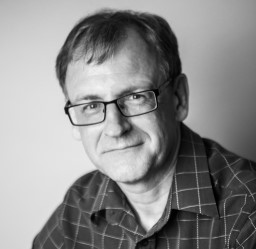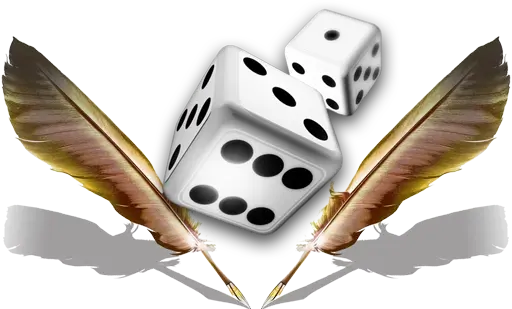A gentle breeze from the open window forced the curtains slightly apart and a sunbeam danced through the chink, playing across the face of the youth who lay sleeping on the bed. As the warm fingers touched his skin, the youth opened his eyes and slid out of bed. He was tall and slim, with brown hair and blue eyes. The mouth was set in a serious line, as it always was, and a small growth of stubble lay on his chin. In spite of the beginnings of a bread, a sign of manhood, the countenance of the youth gave him the appearance of a teenager, seventeen at most. In fact, the previous day had been his twenty-first birthday. Andrew Redlaw’s age was always being underestimated by others. Sometimes it was useful and sometimes it was a real bother.
Andrew glanced at the calendar on the wall and read the date. 21 May 1980. A line of puzzlement creased his forehead. He looked again, then slowly, the frown subsided and a look of sheer joy took its place. The date had nothing to do with this transformation. It was the mere fact that he could read it clearly at all. The day before his eyesight had been far from twenty-twenty but now he could see perfectly. After having been short-sighted for three years, his eyes had gone back to normal, voluntarily. Or maybe not, thought Andrew, for he remembered that the previous night he had violently cracked his head on the stone fireplace. That must be the answer.
His initial impulse to cheer and dance about was quickly quelled. It was more than likely only a brief recovery due to the bang on his head. No use building up hopes too high, only for them to come crashing down again about his ears. Best to take things one step at a time and see what happened.
Having decided on this course of action, Andrew went through the normal routine of washing, shaving and dressing. Within fifteen minutes he only had to run a comb through his hair to present a respectable figure. He tried his glasses and found it was like looking through unfocused binoculars. He left them on the cupboard. With any luck he would not need them again.
Whilst easting his breakfast, Andrew decided that his first priority was to visit his optician for a proper diagnosis. On phoning he was fortunate enough to be given an appointment for that morning, available due to a cancellation. He only just had enough time to cycle the two miles into town.
“No doubt about it,” confirmed the optician, Mr Munday, after a ten minute check-up. “Your vision is now twenty-twenty.” He shook his head in disbelief. “Amazing. I have heard of such things happening but it is still rather a miracle. Of course,” he added solemnly, “there is no way of knowing how long it will last.”
“I know that,” said Andrew. “I’m already resigned to the fact that it is probably only a temporary respite due to that blow to the head.”
“Undoubtedly due to the bang on the head,” agreed Mr Munday. “Yet, let us not be pessimists, it might last for years.”
“That is what I am hoping for,” declared Andrew, visibly crossing his fingers. “I would like to know, however, what has happened to let me see again.”
“Well, I’ll see if I can explain it to you,” aid the optician. “Look at this chart of the eye.” He pointed to the wall where a diagram of the eye was pinned. “This is ithe inside of the eye. Light enters here through the pupil. That is the black spot in the cente of the iris, which is the coloured part of the eye. Behind the pupil is a lens and this bends the rays of light inwards to form a clear picture on the retina, here. The lens alters shape to focus objects at varying distances, This is necessary because light from objects close to enters the eye at a much steeper angle than far away objects. The lens needs to be strong to bend these steep rays as they have to turn through a tighter angle to converge on the retina. Rays from far off do not need to be bent so much so the lens does not have to be so strong.” He paused in his explanation. “Are you with me so far?”
“I think so.” Andrew nodded.
“Right. The lens alters its shape by way of these ciliary muscles here. Short sightedness is caused when these muscles relax too much and stay in that position, leaving the lens always in its strongest mode. Close up objects can be seen clearly but the rays from distant objects are bent too much, thus they converge before the retina and the image is therefore blurred. In your case, the bang on the head appears to have cleared the trouble and your eyes are functioning normally again.” Mr Munday shrugged his shoulders. “That is the theory. I cannot explain why your eyesight is perfectly restored, only what appears to have happened. If I knew why, then short-sightedness could be medically cured.”
“I understand that,” Andrew acknowledged. “Thanks for explaining. I’ll be off now.”
“Come back for a check-up in six months or if your eyesight worsens again,” the optician advised him.
Andrew left the premises with his hopes high. The weather seemed to have anticipated his mood to perfection. The sky was a vast expanse of bright blue with not a puff of cloud to be seen. The sun beamed benevolently from the heavens, making it the first really hot day of the year, a complete contrast to the previous day. In fact, for the past few weeks the weather had consisted of blustery winds and frequent showers, ass the meteorological phenomena of March and April had combined for the first weeks of May.
The town looked fresh and clean in the bright sunshine. Poynton was still referred to as a village by the locals but had developed into a prosperous town, growing from a small community back in the days when the main industries in the area had been mining and agriculture. The town centre was situated on a crossroads and the church on the corner of the southern and western arms provided an easily recognisable landmark, as its spire towered above all surrounding buildings. The road to the north travelled to the neighbouring town of Hazel Grove and on to Stockport and Manchester. To the south lay Macclesfield and to the west Wilmslow and Alderley Edge. The road to the east led to a less built up area where fields and trees could still be found.
Andrew stood and marvelled at how clear and sharp everything was. Before he had been forced to wear glasses, he had taken good eyesight for granted, but having been deprived of it, he now realised how precious it was. If he were fortunate enough to retain perfect vision he vowed to avoid any straining of his eyes. Not many got a second chance.
Andrew rode his bike up the south-bound road for about a mile then turned left. This road was bordered by houses on both sides. These houses had been standing for some years but behind these lay now housing estates that were rapidly eating up more and more land. Presently, Andrew left the houses behind and could see open fields and trees. He could hear the songs of the skylarks on the wing and see a sparrowhawk hovering over some unsuspecting prey. Suddenly, the hawk ceased hovering and plummeted to earth like a stone. Seconds later this winged hunter was up and soaring, prey held in its curled talons. Andrew rounded a bend and the hawk was out of view as he had his back to the scene.
The cottage lay just ahead and parked outside the front gate was a red Escort. On the roof a plaque carried the symbol of a learner driver, the red ‘L’ and the words ‘Drummond Driving Instructor’. In all the excitement, Andrew had forgotten about his driving lesson. He was not unduly worried about this. Nigel Drummond was a friend of the family and was probably enjoying a cup of tea inside. This assumption turned out to be true because as Andrew entered the kitchen he saw his mother and Nigel sat at the table, both with a cup of tea before them.
“Hello Andrew,” greeted Nigel. “Glad to hear of your good fortune.”
“Thank you,” said Andrew. “Sorry I’m late.”
“Think nothing of it, my boy.”
“Would you like a cup of tea, Andrew?” asked Mrs Redlaw.
“No thank you,” replied Andrew.
“Right then!” boomed Nigel. “Let’s go!”
What could possibly go wrong in a driving lesson? Keep your eyes peeled for the next episode.

